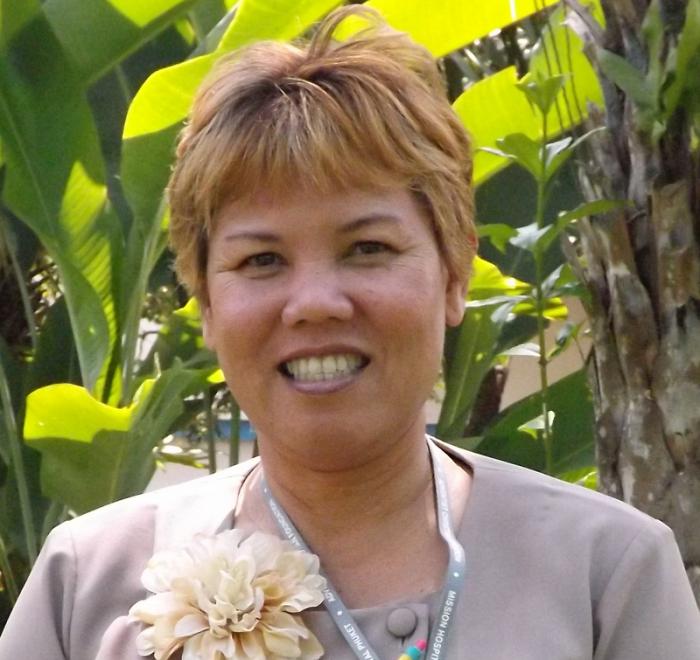Phuket Opinion: Extending a helping hand at the hospital

Chananan Sutsadang, 51, is a native of Bangkok. She has a BA in Business Administration from Loma Linda University and lived in the United States for 20 years before moving back to Thailand. She worked in health care and as a teacher before joining the customer service staff at Mission Hospital last year.
Here, she talks about differences between Thai and foreign patients and the challenges she faces serving them.
PHUKET: Mission Hospital has a good reputation and both Thai and foreign patients come here.
We don’t choose our patients; we serve everyone who comes, and it is our duty as customer service staff to take care of each patient as well as we can. We try to treat all patients as though they were family members.
A strong ability to communicate is the most important skill for us to have. We get patients from all walks of life, each with his own needs and illness. We need to be able to help anyone with any
problem.
Language barriers can create problems, but we have taken steps toward bridging the communications gap, and have some suggestions for what patients can do too.
Some foreigners, like Chinese and Russians, often cannot speak English. We have prepared a little questionnaire in their languages to help us get basic information, such as what their symptoms are, whether they have insurance, names of relatives and so on. We recommend that patients who don’t speak English try to come with a translator, to make it easier for the doctor to understand them clearly.
Most of our patients are Thai, but we see more than 20 foreigners per day. Over time, I’ve noticed differences between our Thai and foreign patients.
When they get sick, foreigners are more likely to try treating themselves. They might Google their symptoms, take their own temperature, or buy medicine at a pharmacy. They come to us when their first efforts haven’t succeeded in making them well.
Thai patients, on the other hand, visit the doctor right away, whether they feel a little sick or very sick. They seem to panic when they are unwell, and want a doctor to diagnose their symptoms. The downside is that sometimes people who aren’t very sick cause people who are to wait longer to see a doctor. In some cases it might be better to try home treatment first.
Given this tendency to rely on doctors, you might think that in cases where they are hospitalized, Thai patients would want to stay in the hospital longer, but that’s not true. The Thai patients are the ones always asking the doctor when they can go home – they are worried about their jobs and feel bored staying at the hospital.
Foreign patients tend to want to stay longer to make sure they are 100 per cent well, even if the doctor has already said they can be discharged.
Some issues we encounter are more common among foreigners, but others apply to all nationalities.
For example, not having a necessary document – like a passport or a health insurance card – is a problem more commonly seen with foreigners. If they don’t have proof of insurance, they have to pay for their treatment out of pocket. It is pretty expensive, so naturally they want their insurance to pay.
We offer them two solutions. The first is to contact their insurance company or a friend to bring the documents here. The second is to pay the medical bill and take home the receipt we issue to get reimbursed.
Both Thai and foreign patients tend to get distracted when they’re sick. It’s understandable – they’re worried or in pain. Sometimes they don’t hear us when we call their names, or they wander off in the wrong direction. They often don’t ask us for help or directions, so we have to keep an eye on them.
If you are a patient one day, please feel free to talk to our staff when you have any questions or doubts. We want to serve you in the best way possible.
— Irfarn Jamdukor
Latest Thailand News
Follow The Thaiger on Google News:


























